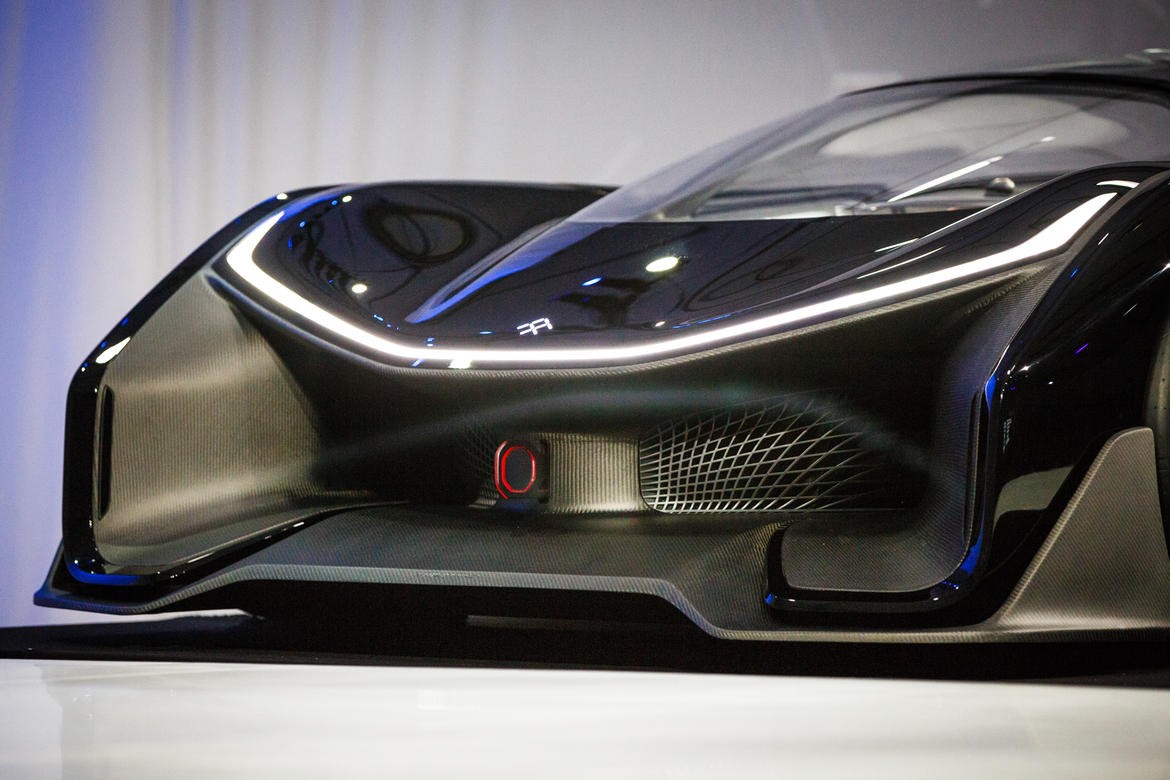Faraday Future Says LG Chem Will Provide it EV batteries
 |
| Faraday Future's concept car |
Faraday Future, the electric car startup backed by Chinese investors and based in California, says it will use lithium-ion batteries made by LG Chem for its future vehicles. The companies say they've co-developed a better battery.
The lithium-ion cells will be integrated into Faraday Future's so-called VPA platform, a universal, scalable modular battery structure that will allow the company to more efficiently produce different sized vehicles.
This is more than just a supplier agreement between a startup and one of the largest lithium-ion battery makers in the world. Like Tesla's relationship with Panasonic–a rival cell supplier–LG Chem is working closely with Faraday Future to develop electric vehicle battery vehicle technology. These deep partnerships are what can lead to cheaper, more efficient, more powerful batteries, which will, in turn, help make electric vehicles more attractive to consumers.
For instance, LG Chem's collaboration with General Motors helped the automaker develop the upcoming Chevrolet Bolt, a mass market electric vehicle that will get 238 miles on a single charge. Pushing the battery range past 200 miles in a car that costs under $40,000, has been viewed as critical for the widespread adoption of electric vehicles.
 |
| LG Chem has helped Chevy get 238 miles on a charge for their new Bolt |
LG Chem, a division of South Korean electronics company LG, has also worked with the more established electric car startup Tesla Motors TSLA 4.74% . The company has supplied cells for Tesla's Roadster, the automaker's first car. Panasonic has been Tesla's main battery supplier for its Model S sedan, Model X SUV, and its upcoming mass market car, the Model 3.
Faraday Future says the companies have already made some advancements in the electric battery by using a new chemistry that results in the highest energy density–or the amount of energy that can be stored in a battery per its volume–for a production automotive battery. The more energy that can be stored in a battery, the longer the driving range.
"LG Chem worked closely with Faraday Future to develop a tailored cell chemistry to optimize the range and safety of our mass production battery hardware," said Tom Wessner, vice president of global supply chain at Faraday Future, in a statement.
This is perhaps Faraday Future's most important partnership to date. The company, which now has more than 1,400 employees, has yet to unveil a production electric car. It has been on a hiring and building spree since its public debut in January at CES, the annual consumer electronics trade show in Las Vegas. Fortune.com
